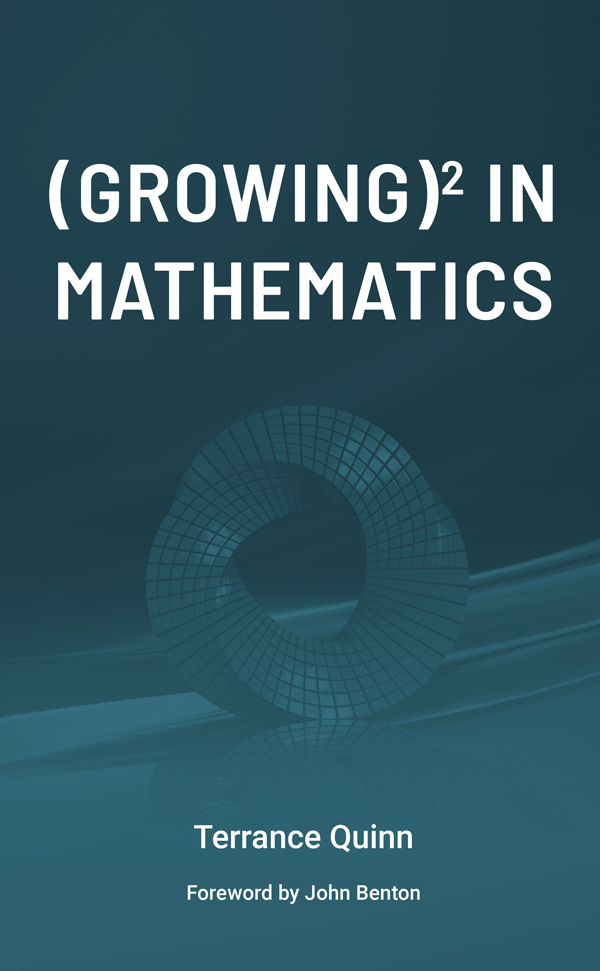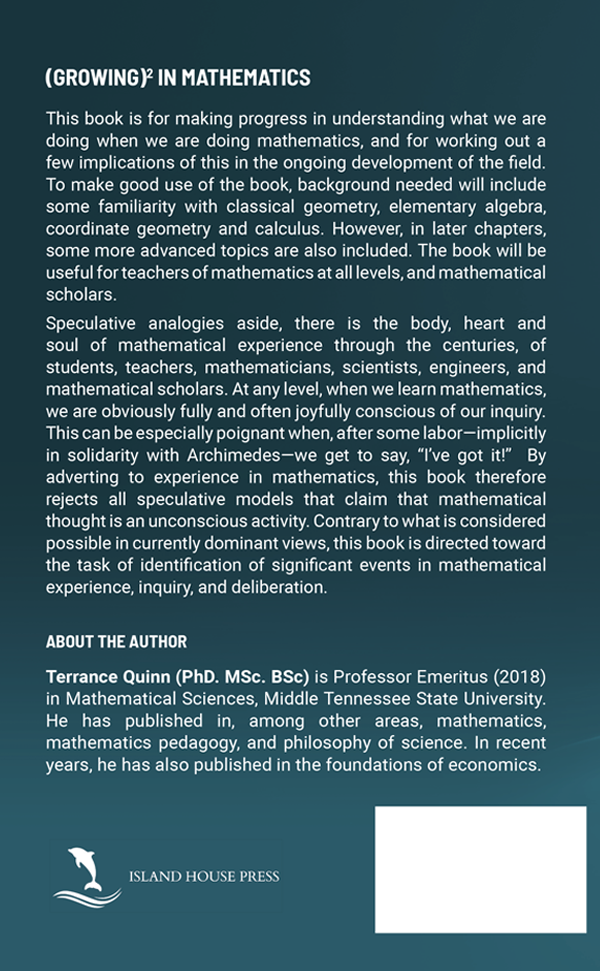This book is for making progress in understanding what we are doing when we are doing mathematics, and for working out a few implications of this in the ongoing development of the field. To make good use of the book, background needed will include some familiarity with classical geometry, elementary algebra, coordinate geometry and calculus. However, in later chapters, some more advanced topics are also included. The book will be useful for teachers of mathematics at all levels, and mathematical scholars.
Speculative analogies aside, there is the body, heart and soul of mathematical experience through the centuries, of students, teachers, mathematicians, scientists, engineers, and mathematical scholars. At any level, when we learn mathematics, we are obviously fully and often joyfully conscious of our inquiry. This can be especially poignant when, after some labor—implicitly in solidarity with Archimedes—we get to say, “I’ve got it!” By adverting to experience in mathematics, this book therefore rejects all speculative models that claim that mathematical thought is an unconscious activity. Contrary to what is considered possible in currently dominant views, this book is directed toward the task of identification of significant events in mathematical experience, inquiry, and deliberation.
About the author,
Terrance Quinn (PhD, MSc, BSc) is Professor Emeritus (2018) in Mathematical Sciences, Middle Tennessee State University. He has published in, among other areas, mathematics and philosophy of science. In recent years, Quinn has been studying and writing on the economic theory discovered by Bernard Lonergan. He gives conference presentations internationally.

